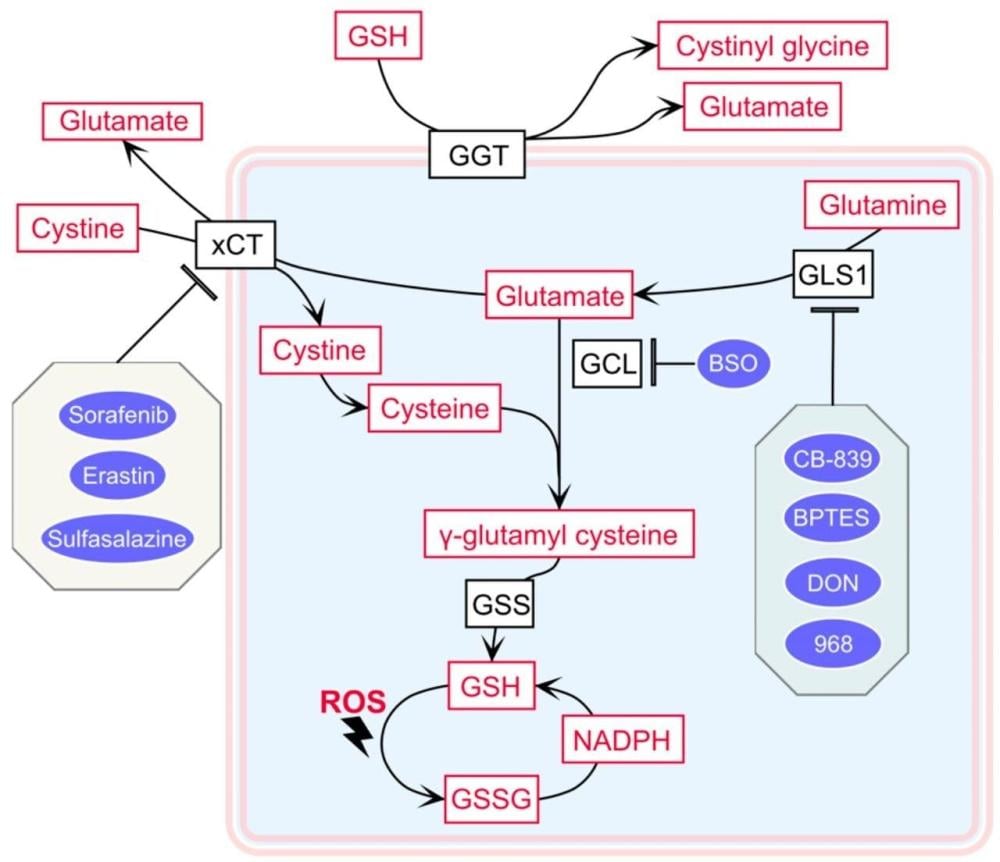
Glutathione is the general term for glutathione sulfhydryl, abbreviated GSH. GSH is a peptide (a very small protein) that occurs naturally in the body, where it is produced inside cells from its three main components (the amino acids glycine, glutamic acid, and the important cysteine). Because it contains 3 amino acids, it is referred to as a tripeptide. Of these three amino acids, cysteine is the most difficult to find. Cysteine is a sulfur-containing amino acid, and it is the most important of the three components. When cells have cysteine, they can efficiently manufacture glutathione. However, this amino acid is absent or deficient in most of our diets. Additionally, it must be in an easily accessible form, and cysteine has a difficult time making the journey from your mouth to your cells unless it is part of a larger molecule or protein.
Without adequate cysteine, cells cannot produce enough GSH, and the body suffers on three fronts. Cellular oxidation contributes to poor health and aging, toxins build up in the body causing further damage, and the immune system is compromised, leaving us susceptible to disease. On the other hand, there are many benefits to the body from high glutathione levels. Some of the metabolic functions it affects are:
– Increase immune function – Eliminate toxins – Eliminate carcinogens – Antioxidant cell protection – Radiation protection – DNA repair and synthesis – Protein synthesis – Prostaglandin synthesis – Leukotriene synthesis – Amino acid transport – Enzyme regulation and activation
These functions can be summarized into three general categories:
- Antioxidants: GSH is the body's most powerful antioxidant. The effectiveness of other antioxidants such as vitamins C and E depends on glutathione.
- Detoxifier: Dozens of toxins are eliminated by the GSH enzyme system, including drug metabolites, pollutants, carcinogens, and radiation damage. Not surprisingly, the highest concentrations of glutathione are found in the liver, the body's largest detoxification organ.
- Increased immune system: The immune system depends on GSH, especially the formation and maintenance of lymphocytes, which are the main line of defense against infection.
These three functions are not separate. As for the immune system, without glutathione it cannot do its job. GSH molecule can neutralize free radicals, recycle them by the glutathione system and eliminate toxins.
Glutathione metabolism and its health effects
This post is based on an article published in the US National Library by researchers from the University of Texas School of Nutrition. The article can be viewed in its original language atthe link . Below is a translation of the article:
Glutathione metabolism and health effects. Authors: Wu G, Fang YZ, Yang S, Lupton JR, Turner ND. College of Nutrition, Texas A&M University, College Station, TX, 77843, USA. [email protected]
summary
Glutathione (gamma-glutamyl-cysteinyl-glycine; GSH) is the most abundant low molecular weight thiol (a compound consisting of hydrogen and sulfur atoms) and GSH/glutathione disulfide is the most important pair in the cellular antioxidant system. GSH synthesis from glutamate, cysteine, and glycine is catalyzed sequentially by two cytosolic enzymes, gamma-glutamylcysteine synthetase and GSH synthase. Evidence suggests that GSH synthesis is regulated primarily by gamma-glutamylcysteine synthetase activity, cysteine availability, and intracellular glutathione inhibition. Animal and human studies demonstrate that adequate protein nutrition is critical for maintaining GSH homeostasis. In addition, di-cyclic cysteine, methionine, and N-acetylcysteine are efficient cysteine precursors for tissue glutathione synthesis.
The role of glutathione in antioxidant defense
Glutathione plays an important role in antioxidant defense, nutrient metabolism, and regulation of cellular events (including gene expression and inhibition, DNA and protein synthesis, cell proliferation and death, signal transduction, cytokine production and immune response, and protein clotting). Glutathione deficiency contributes to oxidative stress, which plays a very important role in aging and the pathogenesis of many diseases including cancer, schizophrenia, Alzheimer's, Parkinson's, diabetes, liver problems, cystic fibrosis, emphysema, HIV and AIDS, heart attacks, and others. New research on the nutritional regulation of glutathione metabolism is critical to developing effective strategies to improve health and treat these diseases.

